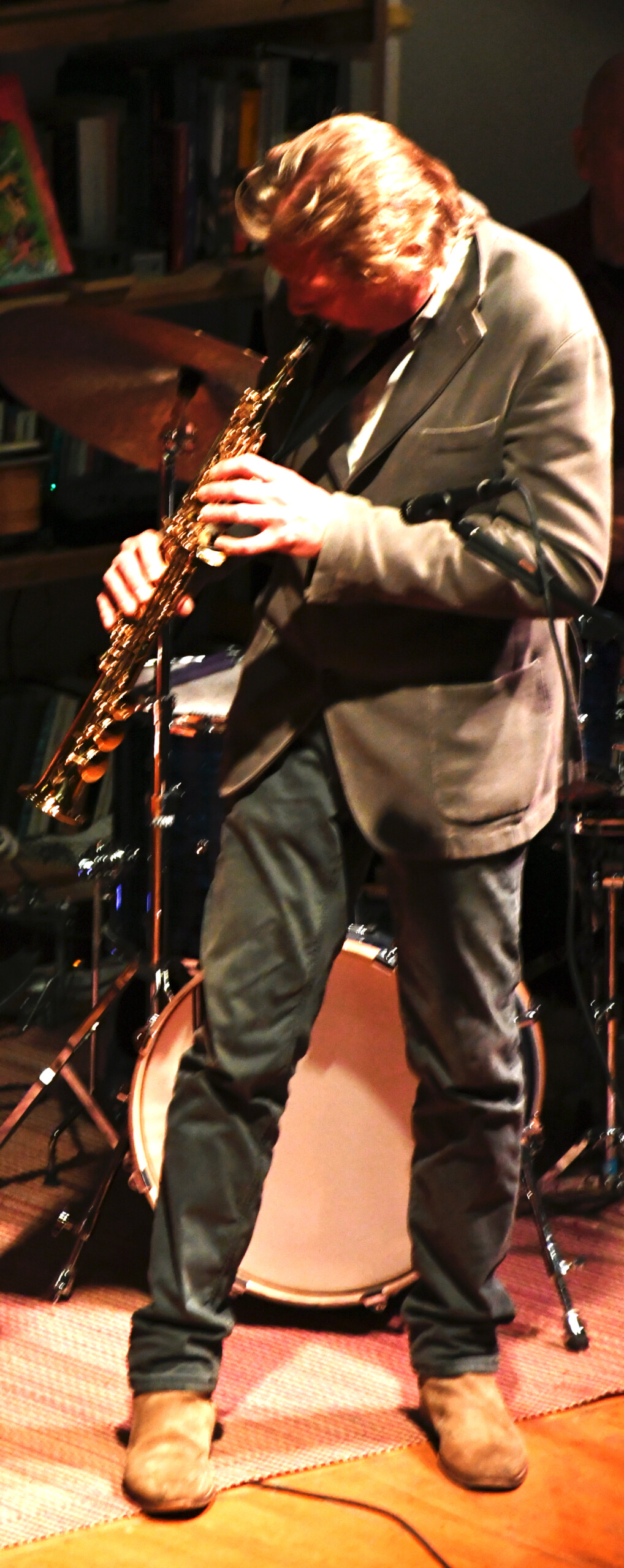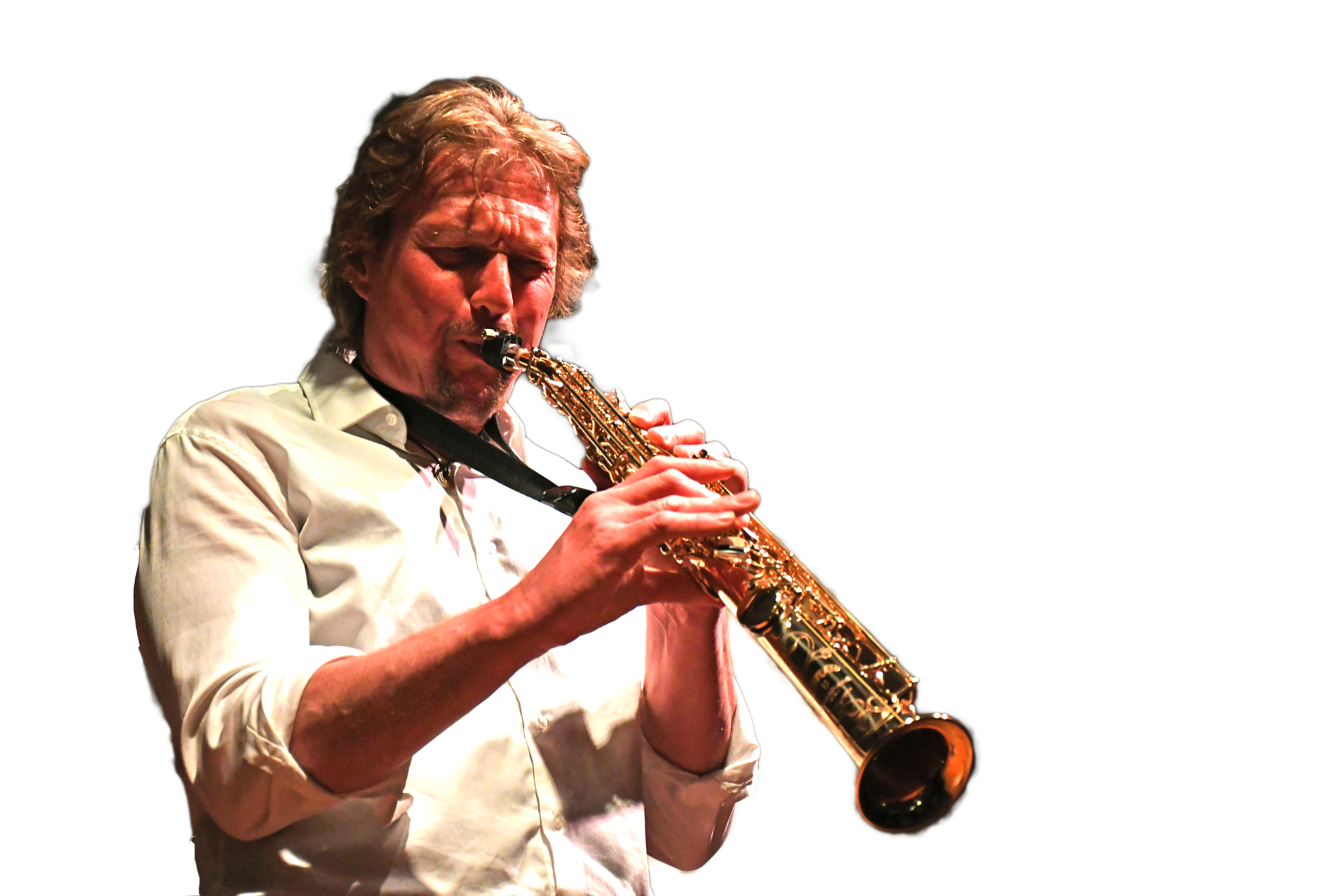Julius Loglio’s biography
Julius Loglio (born Giulio Lorenzo Cesare Loglio), Milan on 11/26/1969, saxophonist, multi-instrumentalist, composer, melodist and improviser, began his musical studies at the age of six, initially devoting himself to piano and classical music and later to modern guitar and tenor saxophone then, beginning in his fifteens to perform live in blues, jazz and rock contexts around town.
In the years to come he then received a solid musical education by attending the National Music Seminars of Siena Jazz, combining the study of the saxophone with those of piano and guitar complementary to the deepening of the knowledge of modern harmony, and through private studies he also graduated in Theory and Solfeggio at the Music Conservatory of Mantova.
At the age of eighteen it was time for Julius Loglio to undertake a professional career, soon imposing himself as a new tenor saxophone talent in both italian and international contemporary jazz scene, collaborating live and in recording studio with the likes of Tony Scott (Benny Goodman), Dewey Redman (Keith Jarret), Enrico Rava ( Gato Barbieri), Tullio De Piscopo, Renato Sellani, Gianni Basso, Mario Rusca, Tiziana Ghiglioni, Marco Micheli, Riccardo Fioravanti, Antonio Farao ‘, Jazz Chromatic Orchestra, Tino Tracanna, Dario Faiella, Roberto Cecchetto, Bebo Ferra, Antonio Zambrini, Ferdinando Faraò, Lucio Terzano, and meeting in public and private jam sessions musicians of the caliber of Bobby Durham (Oscar Peterson), Jeff Watts (Winton Marsalis), Steve Davis (John Coltrane), George Garzone (The Fringe), John Stowell, Manuel Bex , Franco Ambrosetti, Roberto Gatto, Dado Moroni, Flavio Boltro, Gigi Cifarelli…
Over the years, in constant exploration and evolution of his artistry, he finally came up with the soprano saxophone, considering it to be now the most suited instrument by which expressing himself musically.
To date, Julius Loglio and his new J4 acoustic quartet propose a repertory of original compositions connoted by a contemporary sound, deeply linked to the traditional Jazz language yet expanding towards parallel musical worlds such as R’n’B, Soul, Funk, Rock…


